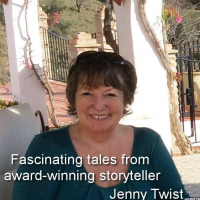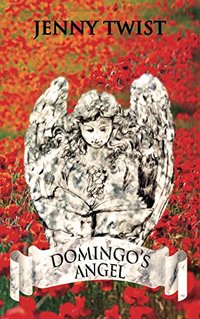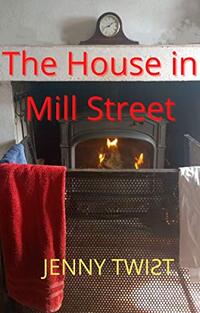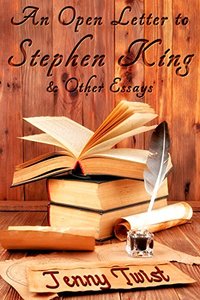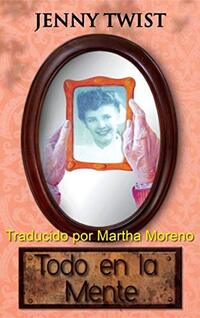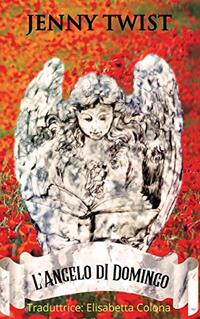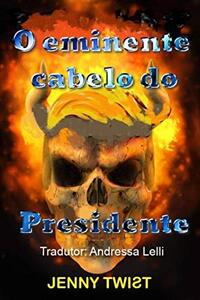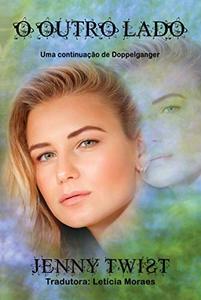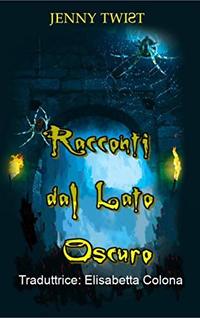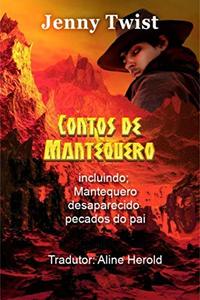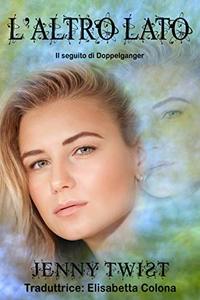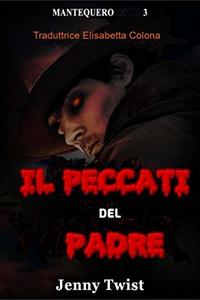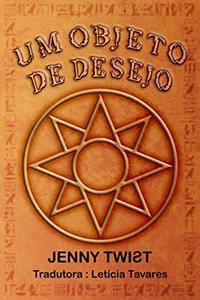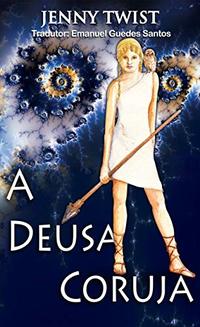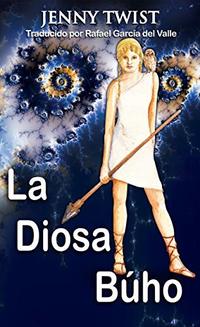Jenny Twist Interview Published on: 22, Mar 2018
 How would you describe life growing up in Heckmondwike? Coming from a big family, what were you family gatherings/reunions like?
How would you describe life growing up in Heckmondwike? Coming from a big family, what were you family gatherings/reunions like?
In my childhood, the power at the centre of our family was my grandmother. She was the centre geographically as well. She lived right in the middle of the town in a one up and one down house in an inn yard. The toilet was at the other end of the yard and was equipped with newspaper squares hanging from a string. My grandmother raised six children in that house.
If you stayed at my grandmother’s house you would probably see every other member of the family during the course of a day. She looked after us at lunchtime or whenever our respective parents were not available. The house was small but there was a warren of cellars underneath full of fascinating abandoned stuff, like my grandad’s leather working equipment – lasts for shoes and a machine for punching holes in dog collars. Later my younger cousins converted part of the cellar into The Cellar Club. I had moved away by then andI never found out what went on there.
Virtually all the family grew up to be in show business in some way. Rumour has it that as a young woman my grandmother sang with a big band. I know from first-hand knowledge that both my own father and my Aunty Mary sang in the clubs. My cousins between them have been stage performers, singers and dancers, one was a television floor manager, another a theatrical agent and two of them ran a stage school for many years. Our family gatherings regularly featured us all doing a ‘party piece’. We all assumed we’d grow up to be film stars. I wanted to be Doris Day.
What pushed you to leave school at fifteen? What did your parents and other family members make of this decision?Although fifteen was the standard leaving age at the time, I could have stayed on. I was an academic by nature and my mother had hopes of me going to university but the gym mistress gave me such a hard time that I couldn’t wait to escape.
The downside of being an academic is that non-academics despise you. I was always top of the class and last in the races. Mrs Williams, the gym mistress, took great pleasure in taking me down a peg or two. She found something I was incapable of doing, which was running, jumping off a springboard and clearing the wooden horse. I tried, I really tried but I couldn’t clear it. She made me try over and over again while the rest of the class watched and laughed when I fell over. My legs were covered in bruises. This went on for months and my mother complained to the headmaster. He shrugged and said it was the rough and tumble of school. So I played truant on sports days and left as soon as they would let me. My mother was devastated but I think she appreciated the money I brought home from my first job.
(I would like to point out that I was a revolting swot and teacher’s pet and I’m not surprised I was unpopular. I just think the public torture response was a bit over the top.)
You will be pleased to know that I have punished Mrs Williams in my story The Children of Hope. It’s in the For the Love of a Child Anthology. You can get it here myBook.to/FTLOAC or you can email me at casahoya@gmail.com for a free review copy.
What then made you decide to go back and complete your education? How do you think your stint of working odd jobs and being out of school has molded you as a person and as an author?I had always believed I could have done well academically and once my youngest child started school I had time to find out, so I enrolled in the local college of further education and did 3 O levels. I enjoyed it so much that the following year I did 3 A levels and applied for university. I decided the only ones I would leave home for would be Oxford or Cambridge (the British equivalent of Harvard and Yale) so I applied for those, plus Manchester. Cambridge did actually offer me a place but it was at an all women’s college and I thought it might be a bit stifling. And anyway the Manchester course was so interesting I decided I would stay where I was. I did later do a second degree at Oxford, so I ended up trying both.
I am so glad I decided to do it. I loved it so much and I made lifelong friends,
I don’t regret spending ten years doing short term jobs. First of all I enjoyed most of them and secondly all experience is grist to the mill for a writer. Furthermore I eventually went into recruitment and, believe me, in that job the greater the variety of jobs you have done, the more it helps.
Which of your books would you say is the most chill-inducing and why?Probably Mantequero. There is something very disturbing about the power that vampires hold over their victims. Other nightmare creatures – werewolves, zombies, ghosts – either do no harm (most ghosts) or can be easily outrun or smashed to bits (zombies). Even with werewolves you have a chance of escaping, climbing a tree or shutting yourself inside a house. But the vampire . . . the vampire makes you love him. How do you escape that?
However, although I think Mantequero is the most chilling book, I think my most chilling story is Waiting for Daddy. It was one of my first and I’m still proud of it. It gives me the shivers because you don’t know what is happening until right at the end. And even then you are not sure whether it’s a thriller or a ghost story. If you want to read it, you can find it in Take One at Bedtime myBook.to/TOAB . It’s the very last story.
Which of Stephen King's novels would you say is your favourite? What inspired you to publish "An Open Letter to Stephen King and Other Essays"?That is a hard one. I have at least a dozen favourites but if I were only allowed one for the rest of my life it would have to be The Stand, partly because it’s so long, but mostly because it has so many different threads. It’s really several stories. I love them all, especially Nick’s. Also it has real evil in it, real love, real courage. If you haven’t read Stephen King and think he’s probably rubbish because he writes horror, I recommend you to read The Dead Zone. It’s not only a great piece of literary fiction, but it predicts the rise of Trump. Greg Stillson in the book is so like Trump it’s eerie. Must read it again.
When I first started publishing I was horrified to discover that you have to promote your own books. Your publisher does little or nothing. So I went on every promotional website I could find and wrote blogs and article. This one, An Open Letter to Stephen King, proved to be very popular, so much so that other websites asked to reproduce it. When I moved into self- publishing I wanted to publish it myself but it was too short to stand alone. And then I remembered all the other blogs and the articles I had written for a local magazine when I first started out.
Also my son said he preferred my journalism to my short stories. He now denies he ever said that. But I remember that he did and I thought if he liked them, maybe other people would like them too.
What gave you the idea for "Domingo's Angel"? Is Amendillas a real place and is Rosalba based on a real person?Do you know, I can’t remember. Obviously the setting was inspired by the place I moved to in 2001, a small farm out in the countryside between two of the white villages, but I have no recollection of how the story of Angela and Domingo came to me.
Maybe, surprised by how old-fashioned these villages were – like England fifty years before – I wondered what they thought of those first Northern Europeans coming here as tourists after the war. Would they have seemed like supernatural creatures? Maybe one of them might even have seemed to be an angel.
Amendillas is an amalgamation of my two nearest villages – Canillas de Aceituno and Sedella. I moved a few things round to suit the plot. I put the fountain right in the middle of the village, for instance. (In Sedella it’s at the entrance to the village with the wash-house tucked away behind it. In Canillas it’s up the steps beside the town hall and if they had a wash-house it had disappeared by the time I arrived).
Rosalba seemed to come to me fully-formed. She is the epitome of the village wise woman. Friends of mine think they recognise people they know. More than one has compared her to the wonderful Gloria that I used to work with. I myself can see some of my own grandmother there. But she’s mostly all the old ladies I have met and grown to love in my new homeland but writ large.
Were any of the stories from "Tales from the Dark Side" inspired by real life events? What, in your opinion, are the ingredients for a truly terrifying horror or thriller book?None of them are based on real events but the characters, places and bits of the plots all come from my own experiences. I have a very distinct memory, for instance, of sitting in my pram as a baby watching a boy further down the street playing, I think, marbles. What if? my adult self wondered, such a young child had witnessed something more dramatic – a murder perhaps?
I am much more frightened by the suggestion of horror than by gore. And I’m particularly taken by paranoia. So, for me, Rosemary’s Baby is terrifying, whereas The Texas Chain Saw Massacre is revolting. As for the Hammer House of Horror films, they just make me laugh out loud.
So – ingredients. . . let’s start with the thing you can hear breathing under the bed, or the neighbour who has begun to act very strangely, digging in his garden late at night. And what is that tapping at the window?
What inspires a lot of your stories? How do you blend two very powerful genres like romance and horror/thriller without one dominating over the other?A lot of my stories come from a chance remark or just something I’ve seen or read. Sometimes I just wake up with an idea. It does make you wonder whether there is such a thing as a muse.
I don’t think any story is strictly one genre. Take Stephen King’s horror stories - many have elements of science fiction. Nearly all of them have romance. What makes his writing so powerful is his ability to make his characters real people that you care about, people who love each other.
As for whether you can blend genres without one dominating – I’m not sure you can. I think the blend is accidental.
When it comes to writing horror or a science fiction book, what kind of research is involved? What are sites you visited or books/magazines you read while writing the book "All In the Mind"?The research would depend entirely on the subject of the story. I very rarely need to do much in the way of research for horror stories, since I have been reading horror all my life and am very familiar with its main elements. I had to do some research for Mantequero, since the character is Spanish supernatural creature, previously unknown to me. But I got enough about it from Google. It’s basically a vampire which eats your fat rather than sucks your blood.
All in the Mind, however, took months of research. I needed to know a great deal of the background for the aftermath of the Second World War in England – lots of little details like what they ate, what household machinery they had available, what products they used. I also had to research the symptoms and current understanding of Alzheimer’s disease and strokes and finally I needed to know about Hindu culture. This last stumped me because you don’t know what you don’t know.
Most of it I was able to glean by Googling but for the Hindu stuff I went on Twitter and asked for volunteers who were familiar with Hindu culture to read the relevant section of the book and tell me what I got wrong. Bless those people! They saved me from so much embarrassment.
What are some interesting ideas about your genre that you love but not many authors tend to write about? How are you trying to change that?One of the aspects about science fiction that really grabs me is the idea (now mainstream science) that there are multiple dimensions, parallel universes existing in the same space, It’s a major theme in many of my short stories and also in The Owl Goddess.
Most if not all of the other ideas I work with have already been explored by other people.
I am not attempting to change anything, though. I write what interests me and what I enjoy and I hope most other authors do the same.
What are your favourite scenes to write? Are there any scenes you have some difficulty writing?I don’t think I have favourites. I don’t look forward to writing the love scene or the action scene or the comic bit. I like weaving the whole thing together and then letting the characters take over.
When did you start pursuing writing as an actual career? How do you think your writing has developed over the years? Are there any books you wish you could revisit and rewrite?I started writing seriously when I retired to Spain in 2001 but I already had more ideas for stories stored up than I could write down. I’d thought about it so much already that I think I was pretty much where I wanted to be from the start. I keep thinking I’ve improved and then I re-read one of my early ones and think that what I’m writing now is about on the same level.
I learned so much more about the Spanish Civil War after I’d published Domingo’s Angel that I would have included had I known. Some of this I have included in the novella The Minstrel Boy (included in the anthology For the Love of a Child myBook.to/FTLOAC ). But there’s still stuff that will come out in another story some day.
What advice have other authors offered you on your journey as an author and which one was the most helpful?I’ve pretty much gone my own way with writing. My dearest author friends whose help and advice I most cherish are, interestingly, mostly English teachers. But we just sort reinforce the things we already believe about writing.
I do not find writer groups and editors very helpful. They seem to be trying to stifle any originality. I assume that the idea is to stamp out purple prose but in the meantime they are stamping out so much that makes the English language beautiful and engaging. English is a rich and beautiful language and it should not be degraded. I give you the great Ray Bradbury’s opinion of editors:- Every dimwit editor who sees himself as the source of all dreary blanc-mange plain porridge unleavened literature, licks his guillotine and eyes the neck of any author who dares to speak above a whisper or write above a nursery rhyme.
Share Jenny Twist's interview
A native of Heckmondwike, author Jenny Twist’s childhood and family-centered around her grandmother. Her entire family all dabbled with show business at some point and she believed she’d be a film star one day. Jenny was always top of the class, last in the races and eventually left school at age 15 only to return once her youngest started school. She doesn’t regret spending ten years doing short-term jobs because of the fun and experience they gave her. Jenny started writing seriously after retiring to Spain in 2001 and, while none of her stories are based on real events, the characters, places, and bits of the plots all come from her own experiences.
 All in the Mind
Genre: Contemporary Romance, Historical Romance, Romance, Time Travel Romance, Historical Fiction, Science Fiction, Teen & Young Adult
All in the Mind
Genre: Contemporary Romance, Historical Romance, Romance, Time Travel Romance, Historical Fiction, Science Fiction, Teen & Young Adult
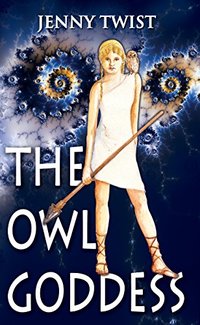 The Owl Goddess
Genre: Action & Adventure, New Adult Romance, Paranormal Romance, Time Travel Romance, Science Fiction, Fantasy, Teen & Young Adult
The Owl Goddess
Genre: Action & Adventure, New Adult Romance, Paranormal Romance, Time Travel Romance, Science Fiction, Fantasy, Teen & Young Adult
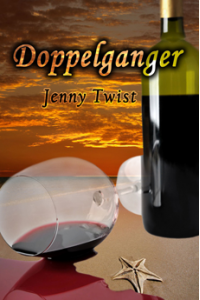 Doppelganger
Genre: Contemporary Romance, Romantic Suspense, Paranormal Romance, Romance, Science Fiction
Doppelganger
Genre: Contemporary Romance, Romantic Suspense, Paranormal Romance, Romance, Science Fiction
 Flipside: A sequel to Doppelganger
Genre: Contemporary Romance, New Adult Romance, Romance, Science Fiction, Teen & Young Adult
Flipside: A sequel to Doppelganger
Genre: Contemporary Romance, New Adult Romance, Romance, Science Fiction, Teen & Young Adult
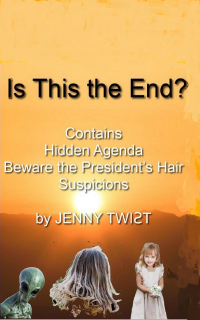 Is This the End?: 3 novellas about the end of civilization as we know it.
Genre: Humor, Science Fiction, Teen & Young Adult
Is This the End?: 3 novellas about the end of civilization as we know it.
Genre: Humor, Science Fiction, Teen & Young Adult
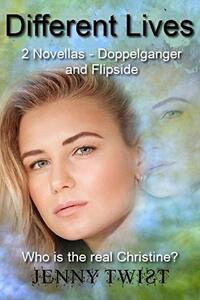 Different Lives: 2 novellas - Doppelganger and Flipside
Genre: New Adult Romance, Time Travel Romance, Science Fiction
Different Lives: 2 novellas - Doppelganger and Flipside
Genre: New Adult Romance, Time Travel Romance, Science Fiction
 For the Love of a Child: Five short stories about mother love
Genre: Contemporary Romance, Historical Romance, New Adult Romance, Romance, Historical Fiction, Women's Fiction, Teen & Young Adult
For the Love of a Child: Five short stories about mother love
Genre: Contemporary Romance, Historical Romance, New Adult Romance, Romance, Historical Fiction, Women's Fiction, Teen & Young Adult
 The Minstrel Boy
Genre: Thriller, Suspense, Historical Romance, New Adult Romance, Historical Fiction, Teen & Young Adult
The Minstrel Boy
Genre: Thriller, Suspense, Historical Romance, New Adult Romance, Historical Fiction, Teen & Young Adult
 Tales of the Mantequero
Genre: Supernatural Suspense, Contemporary Romance, Historical Romance, Romantic Suspense, New Adult Romance, Paranormal Romance, Romance, Horror, Teen & Young Adult
Tales of the Mantequero
Genre: Supernatural Suspense, Contemporary Romance, Historical Romance, Romantic Suspense, New Adult Romance, Paranormal Romance, Romance, Horror, Teen & Young Adult
 Take One at Bedtime
Genre: Crime Fiction, Supernatural Suspense, Contemporary Romance, Romance, Science Fiction, Horror, Teen & Young Adult
Take One at Bedtime
Genre: Crime Fiction, Supernatural Suspense, Contemporary Romance, Romance, Science Fiction, Horror, Teen & Young Adult
 Tales from the Dark Side: Nine short horror stories for Halloween
Genre: Suspense, Supernatural Suspense, Contemporary Romance, Romantic Suspense, New Adult Romance, Paranormal Romance, Science Fiction, Fantasy, Horror, Teen & Young Adult
Tales from the Dark Side: Nine short horror stories for Halloween
Genre: Suspense, Supernatural Suspense, Contemporary Romance, Romantic Suspense, New Adult Romance, Paranormal Romance, Science Fiction, Fantasy, Horror, Teen & Young Adult
 The Children of Hope/Hijos de la Esperanza (Dual Language Books/ Libros de Dos Idiomas SHP Book 1)
Genre: Contemporary Romance, New Adult Romance, Women's Fiction, Teen & Young Adult
The Children of Hope/Hijos de la Esperanza (Dual Language Books/ Libros de Dos Idiomas SHP Book 1)
Genre: Contemporary Romance, New Adult Romance, Women's Fiction, Teen & Young Adult
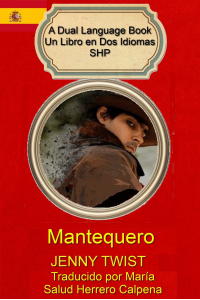 Mantequero - Dual Language Book: English/Spanish (Spanish Edition)
Genre: Supernatural Suspense, Contemporary Romance, Romantic Suspense, New Adult Romance, Paranormal Romance, Romance, Western Romance, Horror, Teen & Young Adult
Mantequero - Dual Language Book: English/Spanish (Spanish Edition)
Genre: Supernatural Suspense, Contemporary Romance, Romantic Suspense, New Adult Romance, Paranormal Romance, Romance, Western Romance, Horror, Teen & Young Adult
 Away With the Fairies/Pensando en las Hadas: A Dual Language Book Un Libro en Dos Idiomas (Dual Language Books/ Libros de Dos Idiomas SHP 3)
Genre: Fantasy, Teen & Young Adult, Children's
Away With the Fairies/Pensando en las Hadas: A Dual Language Book Un Libro en Dos Idiomas (Dual Language Books/ Libros de Dos Idiomas SHP 3)
Genre: Fantasy, Teen & Young Adult, Children's
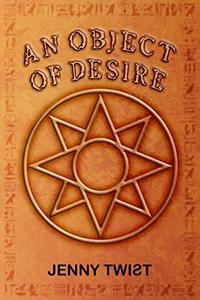 An Object of Desire
Genre: Crime Fiction, Thriller, Suspense, Mystery, Supernatural Suspense, Action & Adventure, Contemporary Romance, New Adult Romance, Teen & Young Adult
An Object of Desire
Genre: Crime Fiction, Thriller, Suspense, Mystery, Supernatural Suspense, Action & Adventure, Contemporary Romance, New Adult Romance, Teen & Young Adult
 Away With the Fairies
Genre: Thriller, Suspense, Mystery, Supernatural Suspense, Fantasy, Teen & Young Adult
Away With the Fairies
Genre: Thriller, Suspense, Mystery, Supernatural Suspense, Fantasy, Teen & Young Adult
 BEWARE the President's Hair
Genre: Supernatural Suspense, Humor, Science Fiction, Horror, Teen & Young Adult
BEWARE the President's Hair
Genre: Supernatural Suspense, Humor, Science Fiction, Horror, Teen & Young Adult
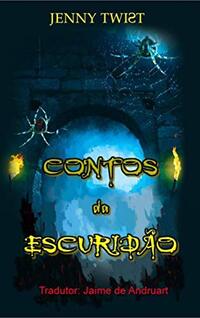 Contos da Escuridão: Dez histórias aterrorizantes para ler no Halloween (Portuguese Edition)
Genre: Supernatural Suspense, Horror
Contos da Escuridão: Dez histórias aterrorizantes para ler no Halloween (Portuguese Edition)
Genre: Supernatural Suspense, Horror
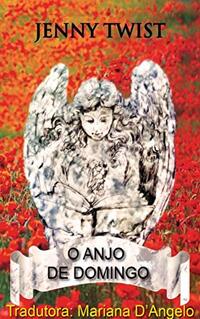 O Anjo de Domingo (Portuguese Edition)
Genre: Historical Romance, Historical Fiction, Teen & Young Adult
O Anjo de Domingo (Portuguese Edition)
Genre: Historical Romance, Historical Fiction, Teen & Young Adult
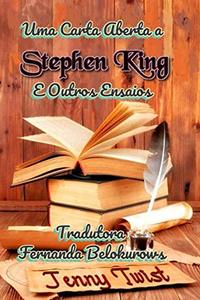 Uma Carta Aberta a Stephen King e Outros Ensaios: Uma coleção de ensaios populares, artigos de revistas e blogs sobre a vida, o universo e tudo mais. (Portuguese Edition)
Genre: General Nonfiction
Uma Carta Aberta a Stephen King e Outros Ensaios: Uma coleção de ensaios populares, artigos de revistas e blogs sobre a vida, o universo e tudo mais. (Portuguese Edition)
Genre: General Nonfiction
 Por el amor de un hijo: Cinco historias sobre el amor maternal (Spanish Edition)
Genre: Thriller, Suspense, Supernatural Suspense, Historical Romance, New Adult Romance, Historical Fiction, Fantasy, Teen & Young Adult
Por el amor de un hijo: Cinco historias sobre el amor maternal (Spanish Edition)
Genre: Thriller, Suspense, Supernatural Suspense, Historical Romance, New Adult Romance, Historical Fiction, Fantasy, Teen & Young Adult
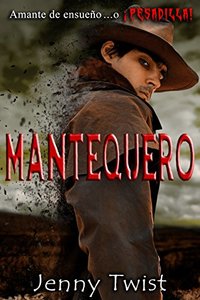 Mantequero: Español (Spanish Edition)
Genre: New Adult Romance, Paranormal Romance, Fantasy, Horror, Teen & Young Adult
Mantequero: Español (Spanish Edition)
Genre: New Adult Romance, Paranormal Romance, Fantasy, Horror, Teen & Young Adult
 Cuentos del lado oscuro: Diez historias cortas de terror para Halloween (Spanish Edition)
Genre: Horror, Teen & Young Adult
Cuentos del lado oscuro: Diez historias cortas de terror para Halloween (Spanish Edition)
Genre: Horror, Teen & Young Adult
 La Déesse à la Chouette (French Edition)
Genre: New Adult Romance, Science Fiction, Teen & Young Adult
La Déesse à la Chouette (French Edition)
Genre: New Adult Romance, Science Fiction, Teen & Young Adult
 Un Oggetto del Desiderio (Italian Edition)
Genre: Thriller, Suspense, Mystery, Supernatural Suspense, Contemporary Romance, Teen & Young Adult
Un Oggetto del Desiderio (Italian Edition)
Genre: Thriller, Suspense, Mystery, Supernatural Suspense, Contemporary Romance, Teen & Young Adult
